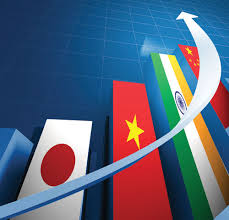Asia’s small open economies may suffer in America’s trade war

CHINA is the stated adversary in Donald Trump’s incipient trade war. But 30% of the value of the goods China exports to America is added elsewhere. If the row escalates, countries entwined in Chinese supply chains will suffer.
Get our daily newsletter
Upgrade your inbox and get our Daily Dispatch and Editor’s Picks.
In absolute terms, Japanese suppliers will fare worst. Japan is the country that exports most to firms in China that export onwards to America. But relative to economic size, such suppliers are a bigger part of several small, open Asian economies (see chart). Between 1% and 2% of some countries’ total output is shipped first to China and then on to America. If Chinese exports to America were to fall by 10%—an extreme but not impossible scenario—it could knock 0.1-0.2 percentage points off their economic growth.
China’s competitors in industries that have been threatened with tariffs, namely aerospace, machinery and IT, however, would benefit. There are many of these in Mexico, Germany and Japan. Tariffs also encourage companies to switch their investment plans. When Ronald Reagan forced Japan to restrict its car exports to America in 1981 he (unintentionally) boosted Japanese investment in Thailand’s fledgling car industry. Manufacturing has already started to shift from China to other, cheaper countries in the region. Tariffs on goods made in China would speed this up.
If the Chinese retaliate, an early target will be America’s farm exports. Brazil, the world’s second-largest producer of soyabeans behind America, would be happy to pick up the extra business. But America’s and China’s competitors should not cheer from the sidelines. A trade war would damage the world’s two largest economies and hit global growth. That would be bad for everyone.
This article appeared in the Finance and economics section of the print edition under the headline “Collateral damage”






